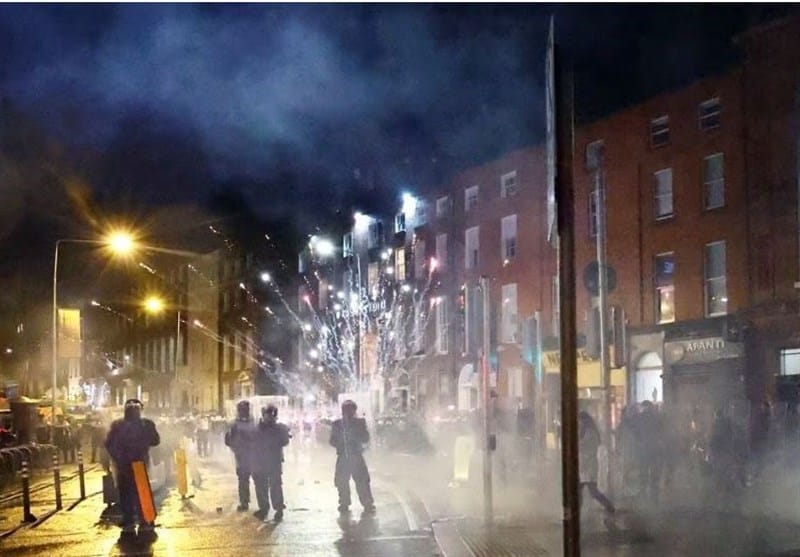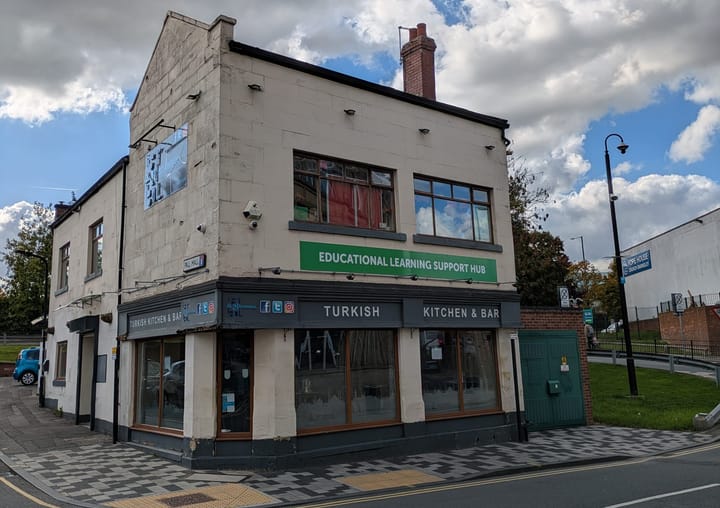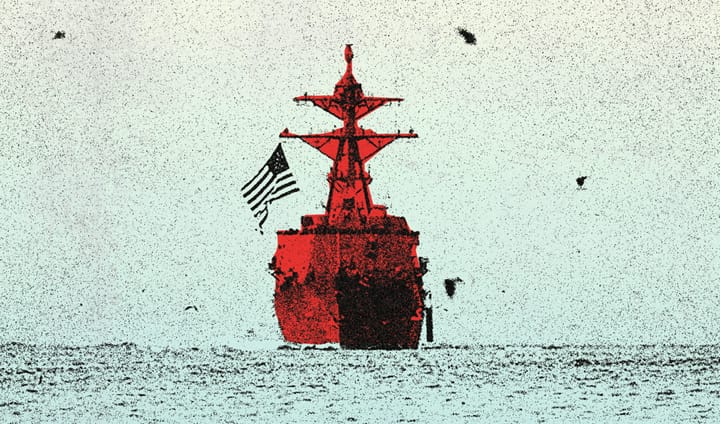Unrest erupted in Dublin City Centre Thursday evening in the wake of a knife attack. Police say that it is not being treated as a terrorist incident but the far-right seeks to bolster its ranks by using such events, Sam Button writes.
By Sam Button
Unrest erupted in Dublin City Centre Thursday evening in the wake of a knife attack outside a Gaelic school north of the city centre at Parnell Square East. Police said that it is not being treated as a terrorist incident, and the 51 year old attacker, whose motives remain unknown, is now in custody. Cars and trams have been burned in clashes with the police.
Taise Azevedo, an immigration lawyer in Ireland, has stressed that migrants are not the problem and highlighted the bravery of a Brazilian bystander to the attack who defended children. There has been praise for bystanders who intervened to prevent further injury from the attacker. This cooperation highlights the power of citizens defending each other and the lack of need for the police, even in situations of acute violence.
The paradox of mass support for the Palestinian cause in Ireland and the new eruption of violence highlights the increasing polarisation of European politics. This demonstrates the fragility of liberal politics and norms which are sought to be swept away by fascist insurgency who capitalise on the economic ruptures caused by a deadly combination of war and neoliberalism. The immigration scapegoats are typically deployed by the right to cover the haemorrhaging living standards across Europe. Misinformation has played a significant role in rallying the violence perpetrated by the far-right on the streets. Popular antifascist resistance to the far-right on the streets has never been more important.
Alex O'Ceallaigh, a teacher at a Gaelic school in Dublin, spoke to Interregnum:
A lot of people are afraid. The Gardaí [the Irish police force] and Irish politicians have let the far-right get away with intimidation for far too long, especially the last three years. There have been Whatsapp messages circled by the far-right to intimidate and attack immigrants at train stations this morning. Many people are afraid to go to school or work. Conor McGregor [Irish UFC fighter] has a lot to answer for spreading hateful rhetoric on social media.
The events in Dublin remind us of another harrowing story: after an attack by an that of asylum seeker Badreddin Bosh, who was shot by police in Glasgow. The conflict in Darfur and attacks on his family by the government scarred Bosh and led him to flee in 2017, travelling via dangerous roots through Libya and across the sea, in a boat that almost capsized, to Italy. He then went on to Germany, Belfast and finally Scotland. He was sick, denied access to Covid testing and self-isolated in his room for 28 days. The conditions of detention adversely affected Bosh's mental health to breaking point when in June 2020, he took a knife and proceeded to attack a total of six people: five asylum seekers who lived in the same hotel, and a police officer. His attacks were random and seemingly motivated by proximity or opportunity. In an interview, one of the people who had been attacked said “He was alone and isolated and lost, and it wasn’t the real him who did what he did. He was sick.” The media, however, was ready to brand the incident a 'terrorist attack'.
The story of Badreddin Bosh is one that reflects the dire situation of the scapegoated other. It also demonstrates how quick the far right is to demonise migrants.
With the electoral wins in the Netherlands for the far-right PVV, fascists must be resisted at the ballot box as they must in the streets throughout Europe. Fascism is like the many headed hydra: when one party fails, such as PiS in Poland, another emerges as we have seen in the Netherlands. This hydra draws its lifeblood from its international network. Whilst relying on nationalist rhetoric, far-right parties and groups increasingly look for international support to buoy each other.
The global far-right are ruthless, and will use any human tragedy or method as an opportunity. Communities must remain vigilant, and following the historic examples of the Anti-Nazi League, prepare for self defense and liberty from fascist tyranny.
Sam Button is a member of the Interregnum collective






Comments ()